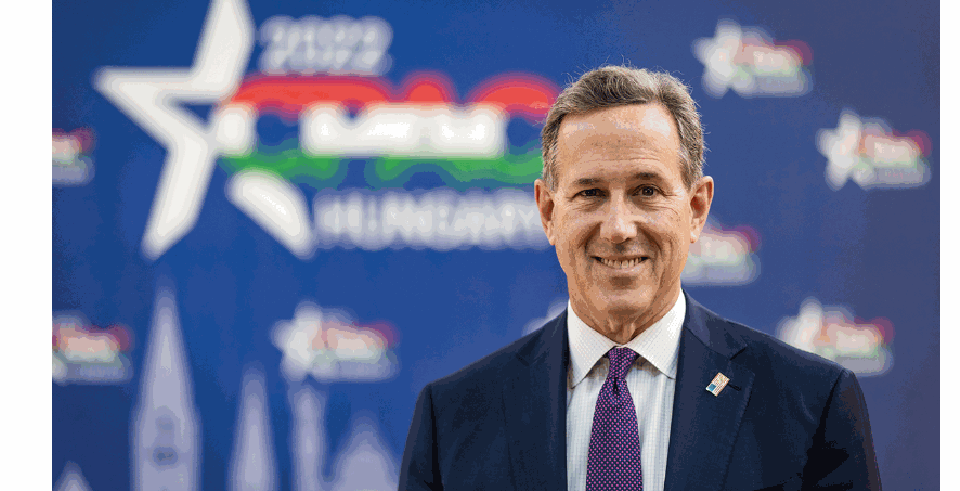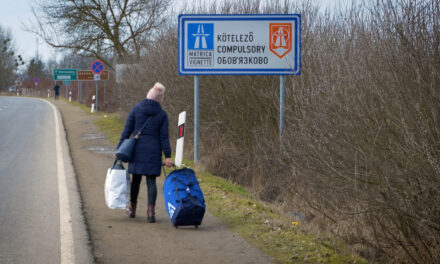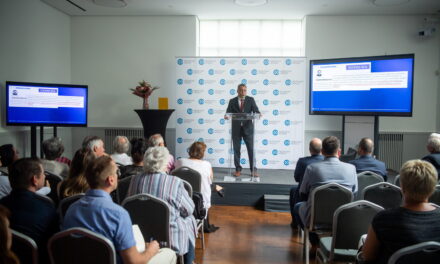He met the Hungarian Prime Minister after the first day of the conference. What topics did they talk about?
A half-hour conversation was scheduled, and it turned into a big, two-hour exchange of ideas. We covered a lot of topics. The main focus was the Hungarian family support system, which I am particularly interested in, and we also talked about Ukraine, the situation in Europe, the upcoming American mid-term elections and the presidential election due in two years. It was an in-depth discussion.
In his opening speech at the CPAC, Viktor Orbán summarized the secret of the Hungarian government's success in twelve points. Which ones did you find the most convincing?
The twelve points themselves made a big impression on me when put together in this way. Orbán formulated strong propositions, it was a heartfelt speech. If I had to highlight one of them, I would choose the first one: " We have to play by our own rules, not our opponents." This is a very important rule, because the field is dominated by the liberals, their terminology and language dominate the political discourse, their narrative determines what is good and what is bad. The value system of the left is based on the fact that anything that serves to stay in power is morally acceptable. If these rules are accepted by the right wing, they will lose the fight, and this country will suffer as well. A level playing field and fair competition are needed in political games, so the right must stand up for its own values and rules. Orbán's first point is important because it is the basis for the rest, it is the framework in which the game can begin. The other points are already about the need to authentically represent the people whose interests the right-wing takes on.
The Orbán government won a two-thirds majority for the fourth time, the interest of Western conservatives in the Hungarians increased. Which government policy is most noteworthy to American Republicans?
In Washington, the Hungarian family policy attracted the most attention, as this is not an ordinary regulation. There are areas where the American and Hungarian conservative governments and parties apply similar solutions, such as the issue of migration, where the strengthening of borders has become a priority, or the flat tax, energy policy and so on - these are all familiar to Americans.
The idea that mothers get an income tax exemption after having four children and all the other financial incentives given to families is a really novel concept. I myself once proposed something like this to a lesser extent and in a different way, but I received harsh criticism for it from both the left and the right in my country. Of course, the situation of the two countries is different. Hungary's economy is doing well, there is no significant migration pressure due to border protection, so the government can take care of raising the standard of living of the population and improving the demographic situation. Within the framework of the legal immigration system, the United States can accept up to one million immigrants per year, which makes up for the shortage in the labor market, so we do not feel the demographic pressure that the Hungarians do; their population is declining and they want to stop it.
These matters are partly national and partly global problems. And if we have already broadened the horizon, I ask: in your opinion, which phenomena today represent the greatest threat to Western civilization?
I consider the destruction of the institution of the family to be the greatest threat. If a political agenda challenges this institution, changes the original structure of the family and leaves its definition entirely up to the judgment of the individual, it is a huge danger. It is also a big problem that people expect all connections, services and information from the state. The program of the left is to separate children from their families as young as possible, to place them in public schools, where they instill their own educational principles into their heads.
Read the full Mandiner article
Author: Tamás Maráczi
Picture: Dávid Mátrai













